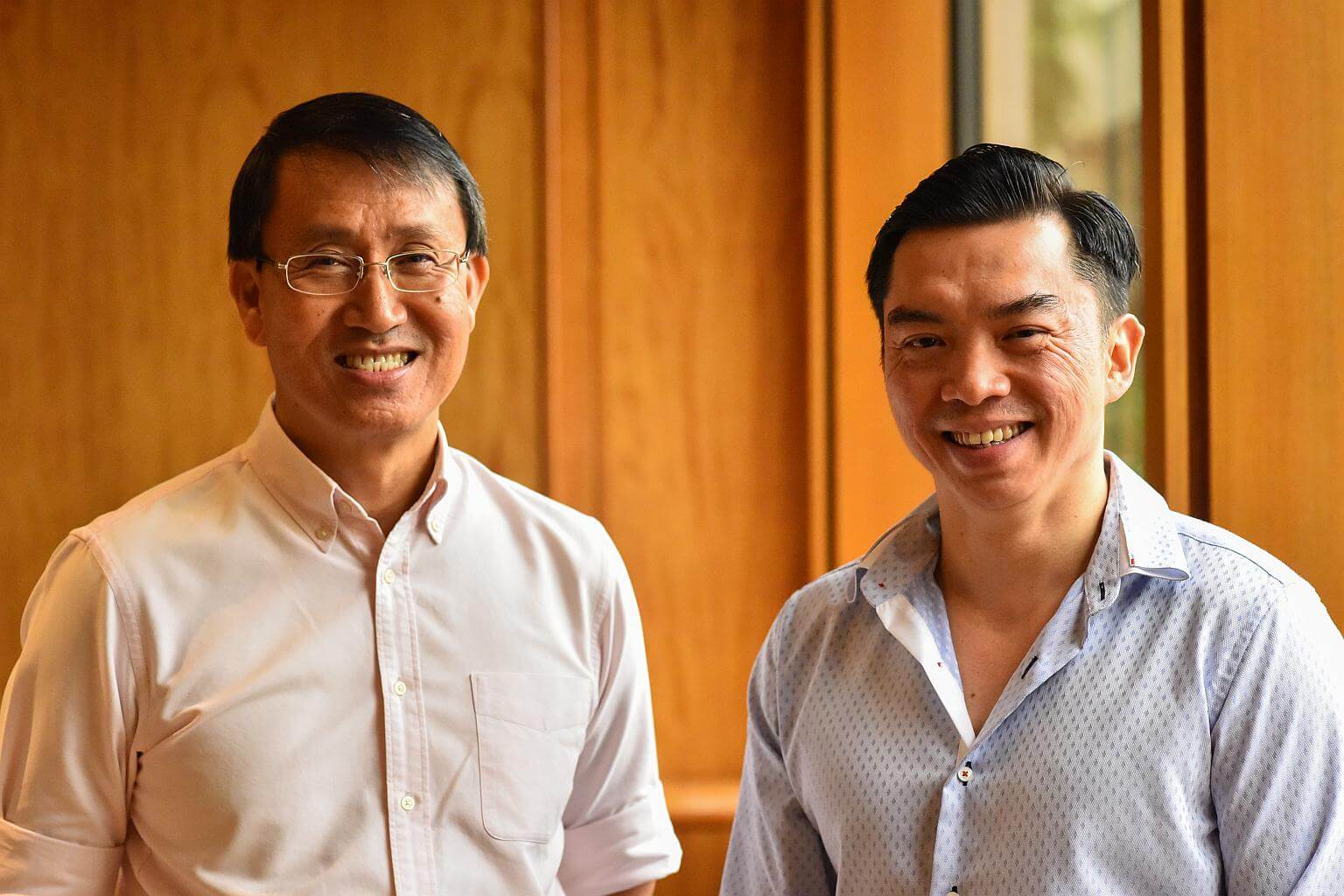$13m to expand Circle of Care for disadvantaged kids
Scheme which builds support systems for them will include more schools and areas
Sign up now: Get ST's newsletters delivered to your inbox

Chief executive of Care Corner Yap Poh Kheng (left) and Lien Foundation chief executive Lee Poh Wah at a media conference at the Regent Hotel in Singapore, on May 23, 2018.
ST PHOTO: SONG TAO
A scheme to build strong support systems around disadvantaged children will get a boost of nearly $13 million and expand to more areas in the next five years.
Launched in 2013 by Lien Foundation and Care Corner Singapore, the Circle of Care scheme gathers the likes of educators, social workers and health professionals to support underprivileged children in partner schools.
The injection of funds will be made up of $10 million from Lien Foundation, $750,000 from Care Corner and $2 million from new partner Quantedge Foundation. This will double the scheme's current investment of $6.14 million.
Mr Yap Poh Kheng, chief executive of Care Corner, also announced yesterday that the scheme will grow from the current 10 pre-schools and two primary schools, to 30 pre-schools and seven primary schools by 2023.
The schools will be grouped into three clusters - Queenstown, Taman Jurong and Woodlands - identified based on the number of rental flats and low-income families in the area, said Lien Foundation chief executive Lee Poh Wah.
At least 10 per cent of each cohort at pre-schools under the scheme come from low-income families. Mr Lee said this proportion is as high as 50 per cent at some pre-schools, a "staggering" figure.
The National University Hospital (NUH) has been roped in to address the health development aspects of children at risk.
-
30
Number of pre-schools under the Circle of Care Scheme, up from 10.
7
Number of primary schools under the scheme, up from two.
Dr Chong Shang Chee, head of the Child Development Unit in the Development and Behavioural Paediatrics division of NUH, said it has identified some health issues that need to be addressed as a priority, such as poor dietary habits.
A team has started conducting health and development screening at pre-schools in the scheme, and there will be a structured way to identify children who need further attention, said Dr Chong.
"We hope to get them to healthcare providers in a faster way, by having the social workers help them get appointments, such as at polyclinics or other specialist clinics if necessary," she added.
Ms Tan Lee Jee, assistant CEO of pre-school services at PAP Community Foundation (PCF), which runs more than 350 pre-schools, said the scheme helps not only the children, but also helps teachers cope with challenges such as supporting parents or working with social workers. PCF has four pre-schools under the scheme, with eight more expected to be added by 2021.
The expansion of the Circle of Care scheme follows the Government's renewed commitment to tackle social inequality.
Mr Lee said there is no national consensus so far on how best to level the education playing field.
He said: "Right now, our education system encourages people to compete and win. I think we need to change that. There needs to be a genuine emphasis on developing every child, whatever their ability, to their full human potential."
Correction note: This story has been edited for clarity.


